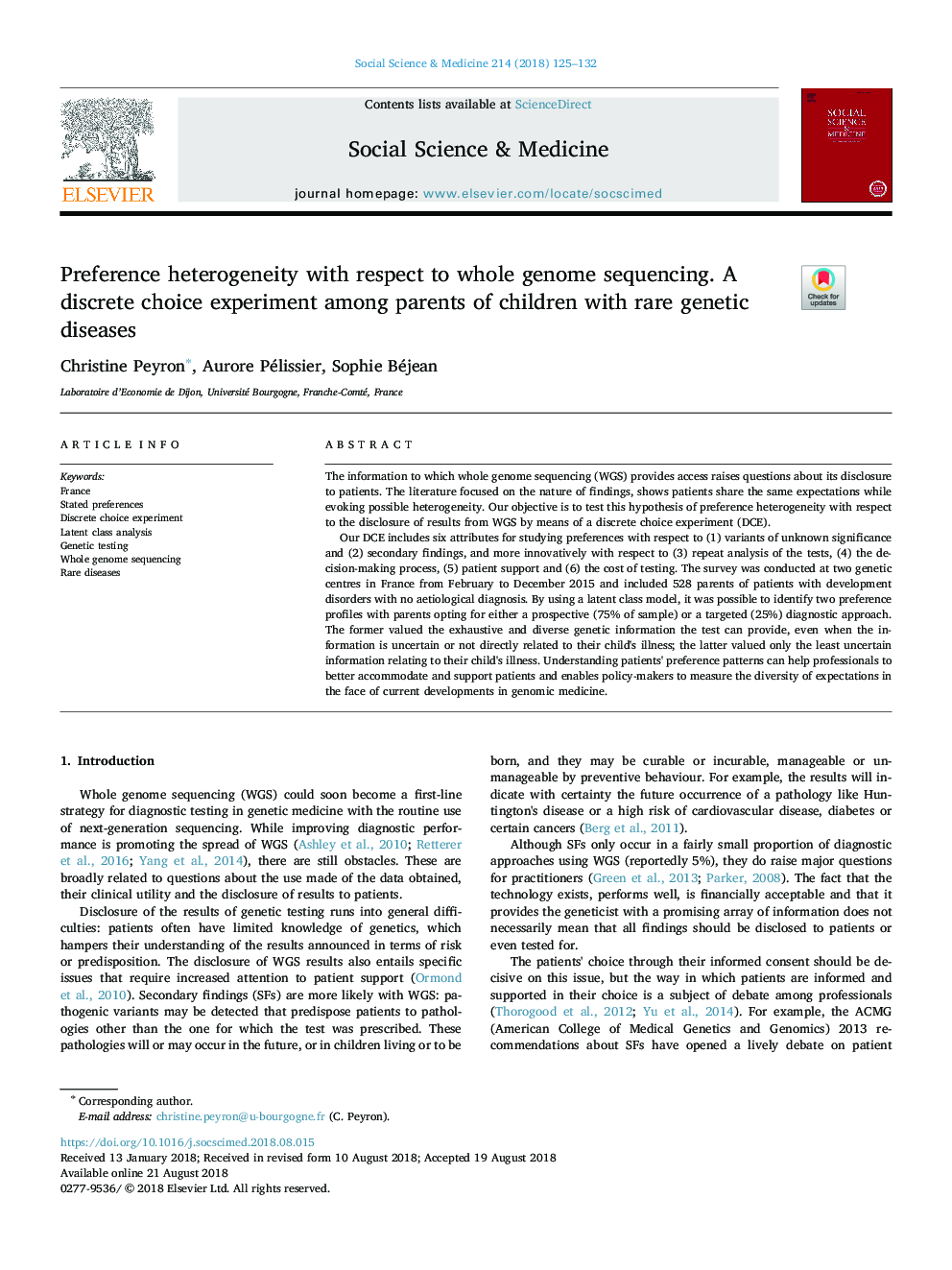| Article ID | Journal | Published Year | Pages | File Type |
|---|---|---|---|---|
| 10127653 | Social Science & Medicine | 2018 | 8 Pages |
Abstract
Our DCE includes six attributes for studying preferences with respect to (1) variants of unknown significance and (2) secondary findings, and more innovatively with respect to (3) repeat analysis of the tests, (4) the decision-making process, (5) patient support and (6) the cost of testing. The survey was conducted at two genetic centres in France from February to December 2015 and included 528 parents of patients with development disorders with no aetiological diagnosis. By using a latent class model, it was possible to identify two preference profiles with parents opting for either a prospective (75% of sample) or a targeted (25%) diagnostic approach. The former valued the exhaustive and diverse genetic information the test can provide, even when the information is uncertain or not directly related to their child's illness; the latter valued only the least uncertain information relating to their child's illness. Understanding patients' preference patterns can help professionals to better accommodate and support patients and enables policy-makers to measure the diversity of expectations in the face of current developments in genomic medicine.
Keywords
Related Topics
Health Sciences
Medicine and Dentistry
Public Health and Health Policy
Authors
Christine Peyron, Aurore Pélissier, Sophie Béjean,
